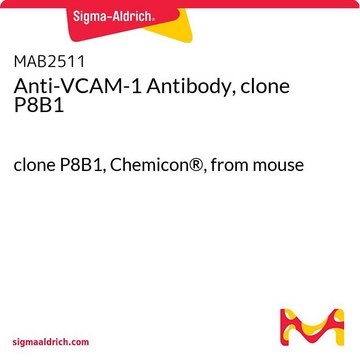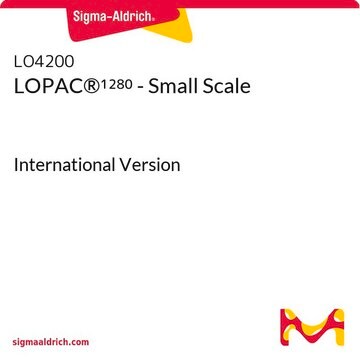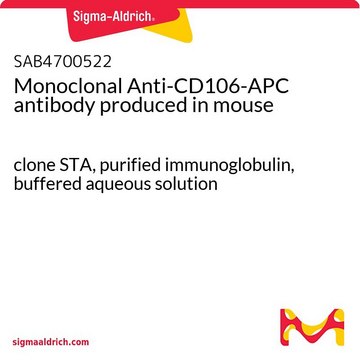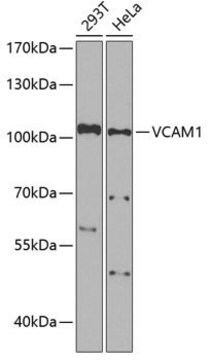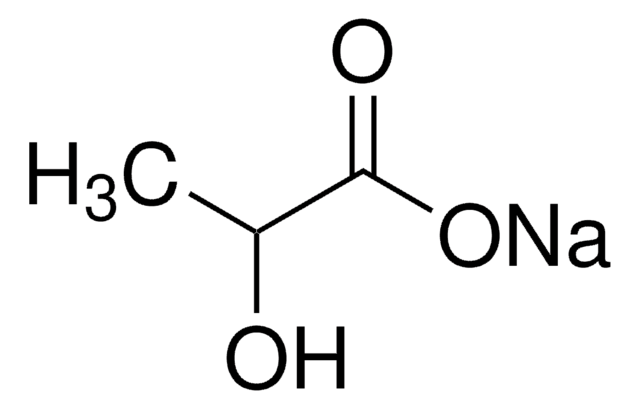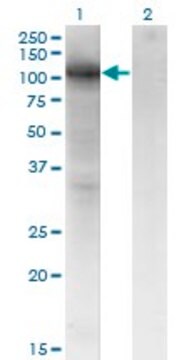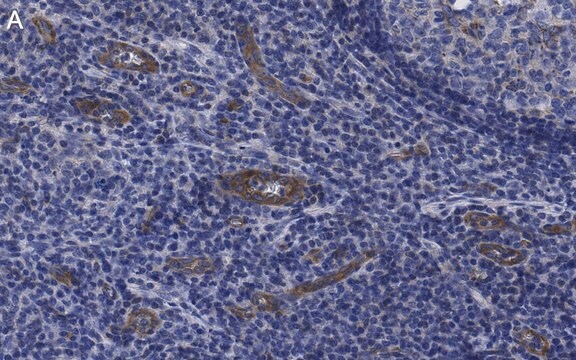Wichtige Dokumente
V9263
Monoclonal Anti-Vascular Cell Adhesion Molecule 1 antibody produced in mouse
~1 mg/mL, clone 1.4C3, purified immunoglobulin, buffered aqueous solution
Synonym(e):
Anti-VCAM-1
About This Item
Empfohlene Produkte
Biologische Quelle
mouse
Qualitätsniveau
Konjugat
unconjugated
Antikörperform
purified immunoglobulin
Antikörper-Produkttyp
primary antibodies
Klon
1.4C3, monoclonal
Form
buffered aqueous solution
Mol-Gew.
antigen 110 kDa
Speziesreaktivität
human
Konzentration
~1 mg/mL
Methode(n)
immunohistochemistry (formalin-fixed, paraffin-embedded sections): 2-4 μg/mL using human tonsil tissue
immunohistochemistry (frozen sections): 2-4 μg/mL using human tonsil tissue
western blot: suitable
Isotyp
IgG1
UniProt-Hinterlegungsnummer
Versandbedingung
wet ice
Lagertemp.
−20°C
Posttranslationale Modifikation Target
unmodified
Angaben zum Gen
human ... VCAM1(7412)
Allgemeine Beschreibung
Immunogen
Anwendung
Physikalische Form
Haftungsausschluss
Sie haben nicht das passende Produkt gefunden?
Probieren Sie unser Produkt-Auswahlhilfe. aus.
Empfehlung
Lagerklassenschlüssel
12 - Non Combustible Liquids
WGK
WGK 2
Flammpunkt (°F)
Not applicable
Flammpunkt (°C)
Not applicable
Hier finden Sie alle aktuellen Versionen:
Besitzen Sie dieses Produkt bereits?
In der Dokumentenbibliothek finden Sie die Dokumentation zu den Produkten, die Sie kürzlich erworben haben.
Unser Team von Wissenschaftlern verfügt über Erfahrung in allen Forschungsbereichen einschließlich Life Science, Materialwissenschaften, chemischer Synthese, Chromatographie, Analytik und vielen mehr..
Setzen Sie sich mit dem technischen Dienst in Verbindung.